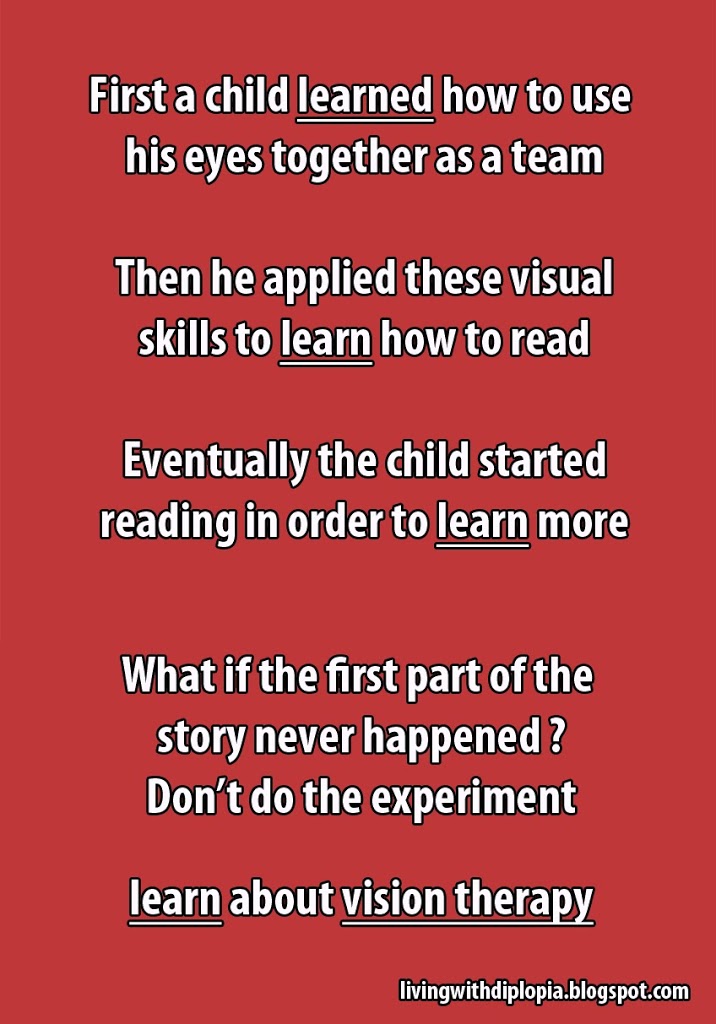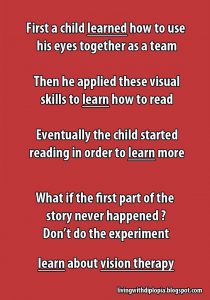
What about strabismus and anxiety?
A few months ago I started working on a blog entry called ‘Vision and the limbic system’. I was going to blast you guys away with brain regions, circuits and neurotransmitters so we’d all go tell our friends how cool this is and how it explains everything in the known universe. So that entry was just sitting there in the draft section waiting for its Nobel Prize when our strabismic buddy Connor (21) popped this simple question:
Question! Do any members of the group with strabismus experience anxiety? Do you think the anxiety is a symptom of the strabismus?
Upon this question I decided to keep it real and say something meaningful about this subject instead of dissecting it like a dead frog.
To formulate an answer I will be drawing on my own experience, neuroscience/neurology courses I’ve taken and visual rehab books I’ve read/listened to.
It must be said, the visual system and limbic system: big marriage, grand ceremony, long-lasting relationship, potential for beautiful off spring and all that kind of stuff. It’s the holiest of unions. Hallelujah! But how exactly do our feelings and vision relate?
Some people think of strabismus as a cosmetic problem which does cause its share of social anxiety. It’s annoying and awkward sometimes. Certainly. Although the problem goes much deeper than that. I do feel anxious sometimes but I don’t look very strabismic anymore. The anxiety comes from being acutely aware of the fact that I do not yet possess the visual skills to handle many situations effectively. This simply creates anxiety. That generated a follow up:
I’ve just noticed that sometimes I feel anxious for no reason, and when this happens my strabismus is worse. So I was wondering. Is the anxiety a symptom of strabismus, or is my strabismus a symptom of anxiety?
Since strabismus or vision disorders are head-to-toe problems, I’d say these are communicating sources. When one feels threatened or anxious, your brain makes short cuts and ponders less on the visual input it is receiving to make a potential reaction more timely. Your autonomic nervous system goes into sympathetic mode (fight or flight) and a whole bunch of attention resources are being relocated for other purposes than enjoying the view. On the other hand, when you are calm and are enjoying a parasympathetic state (rest and digest), you are getting more nutrients out of your food and the energy is distributed in such a manner visual input is processed more elaborately. In other words, your brain and body can invest in the future and build new capabilities rather than just having to survive.
Here’s the catch 22. A defective visual system and impaired reading skills are a source of stress by itself. You are going to have to work harder to get things done. You are being excluded from many opportunities. Energy-wise you are not getting much bang out of your nutrient buck and so this vicious cycle grabs hold. With a vision dysfunction you can work yourself to death and still get nowhere even though you have above average intelligence (whatever that means). You try, you succeed, you try, you succeed, you try, you sacrifice everything, you succeed barely, the effort is increasingly disproportionate to the result, you keep working, surgery gone bad, keep working, another surgery to make up for the other one, you burn out, you partly recover, you keep working, you burn out again, there’s no help to be found, you end up in prison or an insane asylum and lose everything. The end. Anxious yet? Treat the vision dysfunction appropriately when it presents itself and you can avoid this whole mess. Prevention, prevention, prevention.

One of the big challenges for me is to stay calm in a de facto underdog position but I’m getting it down. Contain the environment and get your juice back. Being anxious is a big waste of energy and slows down vision rehab, nevertheless it has to run its course and potential threats have to be handled with your primary goal in mind. Once you’ve depressed to a low key mood and are still not in prison, things do get better. Peace of mind is a great asset as the limbic system is the gate keeper of brain power but it’s hard to acquire!
Wow! Thank you. That is the best explanation of how I feel on a daily basis, I have ever read.
My pleasure!